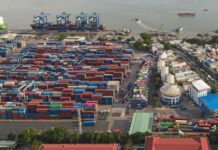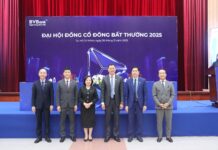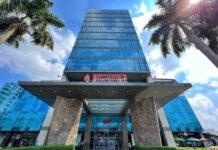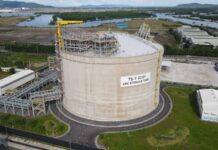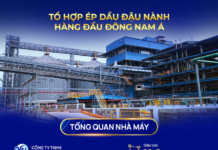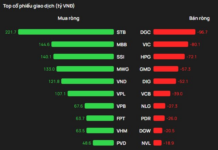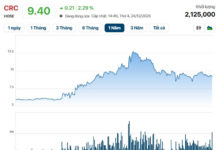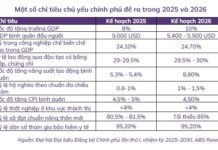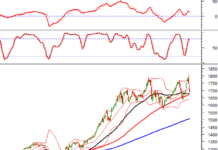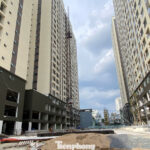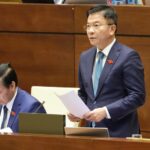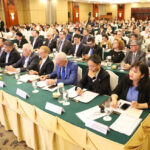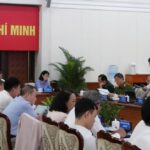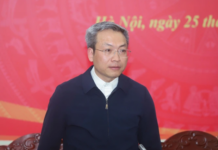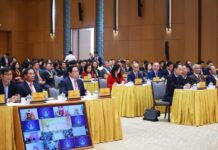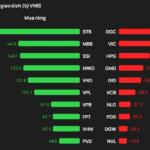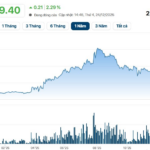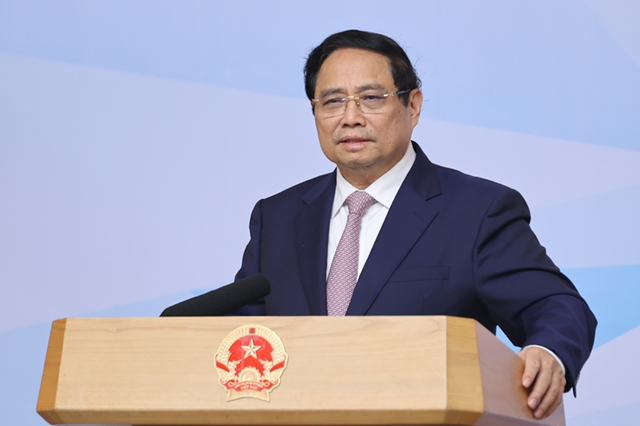
Prime Minister Pham Minh Chinh addresses the conference on the establishment of the International Financial Center in Vietnam – Photo: VGP/Nhat Bac
|
On the morning of November 1st, at the Government Office, Prime Minister Pham Minh Chinh chaired a conference discussing the establishment of the International Financial Center in Vietnam. The event was broadcast live to several countries, including the UK, the Czech Republic, Hong Kong (China), and Indonesia, attracting the participation of government leaders, ministries, and representatives from financial institutions, corporations, banks, investment funds, and law firms both domestically and internationally.
According to Resolution 222 issued by the National Assembly on June 27th, the International Financial Center will be established under the model of “one center, two destinations.” Specifically, Ho Chi Minh City will serve as a large-scale hub, focusing on the development of stock, bond, banking, and fund management markets. Meanwhile, Da Nang will target financial services linked to logistics, maritime, free trade, and supply chains. The central area in Ho Chi Minh City is expected to cover approximately 899 hectares, while the area in Da Nang will span around 300 hectares.
Minister of Finance Nguyen Van Thang stated that the decree on the establishment of the International Financial Center is a foundational document, clearly outlining the organizational structure, supervisory mechanisms, and special policies to ensure the center operates according to international standards. The goal is to build a robust legal framework that enables Vietnam to compete with major financial centers in the region while fostering trust among global institutions from the outset.
The Prime Minister emphasized that this is a challenging and unprecedented task for Vietnam, but “no matter the distance, persistence will lead to success.” The Government will not strive for perfection or rush, but neither will it miss opportunities. He urged ministries and agencies to work with focus and priority, ensuring that commitments are followed through with measurable results.
As planned, the Center will have two executive bodies in Ho Chi Minh City and Da Nang, a common supervisory agency, and a specialized court to handle disputes. The operating system will be based on digitalization and artificial intelligence, ensuring transparency, autonomy, and high competitiveness.
The Prime Minister also called for the development of policies robust enough to attract both domestic and international experts, creating a harmonious ecosystem between people, society, and nature. Both cities need to prepare adequate infrastructure and a conducive living environment to attract high-quality human resources.
The head of the Government emphasized the simplification of administrative procedures under the principle of “one stop, one seal, one person,” reducing pre-checks and increasing post-checks, while ensuring transparent, stable, and predictable regulations. The International Financial Center will not only serve financial activities but also expand into trade, investment, and production, driving new economic growth.
“Nothing is easy, but nothing is impossible. We must turn challenges into opportunities, the impossible into the possible, and surpass our own limits,” the Prime Minister stated, affirming that innovation is the driving force, and the strength comes from the people and businesses.
Concluding the conference, the Prime Minister instructed the Ministry of Finance and related units to urgently finalize the draft decree for Government approval within the next few days, ensuring the International Financial Center officially commences operations in November.
– 15:00 01/11/2025
Unusual Developments in Once-Hot Land Plots in Dong Nai, Hung Yen, Bac Ninh, and Ninh Binh
According to the Ministry of Construction, regions such as Dong Nai, Hung Yen, Bac Ninh, and Ninh Binh, after experiencing a “feverish” period earlier this year, have now returned to a stable state. The majority of transactions are genuine purchases, catering to either residential needs or long-term investment goals.
Deputy Prime Minister Le Thanh Long: Public Debt Significantly Below Regulatory Limits; Development Investment to Account for 40%
Deputy Prime Minister Lê Thành Long announced a significant shift in Vietnam’s state budget allocation. The current term prioritizes development investment, allocating 32-33% of the budget, compared to 28% in the previous term. Conversely, recurrent expenditure has decreased to 57-58%, down from 63.2%. Looking ahead, the 2026-2030 plan further emphasizes development, aiming to increase investment spending to 40% while reducing recurrent expenditure to approximately 50.7%.
Ho Chi Minh City Poised to Become Southeast Asia’s Next Global Megacity
Driven by the resolve to overcome critical challenges such as traffic congestion, flooding, and administrative inefficiencies, Ho Chi Minh City aims to foster a seamless investment environment. By partnering with foreign direct investment (FDI) enterprises, the city strives to shape a dynamic, investor-friendly international metropolis, ultimately fueling sustainable growth across the Southern region.
Can Gio Land Reclamation Project Submits Over $1.15 Billion, Propelling Ho Chi Minh City’s Budget Breakthrough
Domestic revenue remains a highlight, driven by significant windfall gains from land use fees and rentals, particularly the substantial contributions from the Can Gio land reclamation project.





